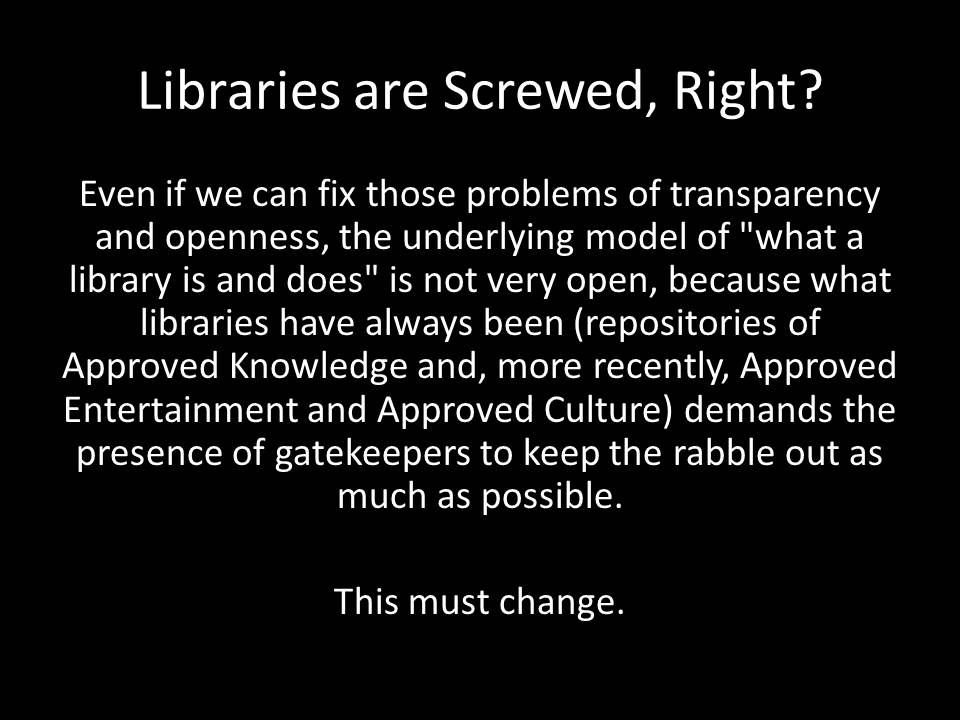By Our Very Nature

Even if we could fix many of the problems mentioned above through technical measures, there are underlying cultural issues involving public libraries and the perception of the public. Public libraries have often acted as gatekeepers of Approved Knowledge and Culture, and in a world where access to those resources was scarce and expensive, the public library was an excellent solution to the problem - it lifted the burden away from the individual and put it on the community. It would probably not be too far out of line to say that public libraries are now the victims of their own success using this paradigm.
If someone thinks about a public library as merely a repository of books or other physical materials to be browsed, checked out, and returned, then they deservedly have a rather dim view of libraries surviving into the digital age. Even if someone thinks of the library as a repository for all kinds of information, including digital collections, on-line journal access, and physical objects, they're still not liking our chances of survival. Who would blame them for thinking this? Google and other search engines improve daily by leaps and bounds in terms of finding any seemingly-random bit of data that's somewhere on the World Wide Web. What used to be a matter of ready reference tools (like almanacs) and specialized reference publications for finding data is now so well taken-over by search engines that they can predict what it is we're looking for before we even finish typing it.